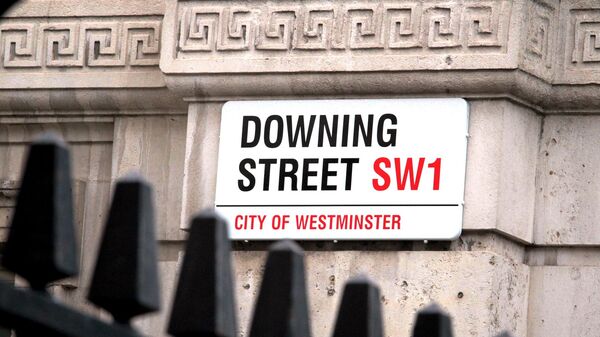With a tear in his eye and a lump in his throat, David Cameron stepped down as the UK PM following news of the Brexit vote. Cameron had campaigned vigorously for the UK to remain inside the European Union, but following the defeat he said: "I do not think it would be right for me to try to be the captain that steers our country to its next destination."
So, who will be the next leader of the Conservative Party, the next Prime Minister of the United Kingdom, and the person who leads the UK out of the European Union? Well, Sputnik has taken a look at the major players and assessed their chances…
Boris Johnson
Boris is the obvious front-runner, he's had his eye on the top job for some time now, and as the most high profile figure in the Brexit campaign, he wouldn't be an illogical choice.
#EURefResults: Boris Johnson pours praise on PM Cameron after resignation over #Brexit https://t.co/3SAKExf1s7https://t.co/8ZkSlars4T
— Ruptly (@Ruptly) June 24, 2016
We can't rule out Boris Johnson being unopposed for Cons leader, if rivals think they can't win. So he could be PM within a week or two
— Michael Crick (@MichaelLCrick) June 24, 2016
Boris has undergone a strange transformation in the UK, once considered as little more than a figure of fun — namely due to his regular appearances on the BBC political comedy program "Have I Got News For You." His popularity increased during his time as London's first Conservative mayor, during which he presided over the London 2012 Olympics.
Oddly though, his chances may have taken a slight hit as a result of the Brexit vote. Boris is a tactician first and foremost, and some have suggested that he would have actually preferred a narrow win for Remain, which would have toppled David Cameron without all the complexity and uncertainty.
Theresa May
When all's said and done, Theresa May could have played the canniest game of all with regards the EU vote and the leadership. A long standing euroskeptic, she surprised many when she backed a Remain vote, but given her history she could be a uniting force within the Conservative Party.

She is certainly a serious candidate and her status as the longest serving Home Secretary in 100 years gives her an air of added credibility over her opponents.
George Osborne
He's wanted the job for a long time, that's no secret. It's true that George Osborne could have been a dead cert for the top job, especially given that he's been the Chancellor of the Exchequer for the last 6 years, and David Cameron's right-hand man. However, on Tuesday Osborne made an announcement, explaining why he "won't be a candidate to succeed David Cameron."
Ruth Davidson
Ruth Davidson is currently the leader of the Conservative Party in Scotland. Whilst it's true that she's popular, and many would like to see her become the next Prime Minister, it's not quite as simple as all that.
The main problem is — she isn't an MP at Westminster; rather her seat is in the Scottish Parliament. Given that inconvenience, it's practically impossible for Davidson to succeed David Cameron. It would be unprecedented for a Scottish MSP to become Prime Minister and no one is seriously considering that outcome. However, there is a lot of talk of her being lined up as a future Conservative leader, and if — as some are predicting — the UK holds a snap post-Brexit General Election, she could find herself selected for a seat in Westminster.
Team Remain. #Wembley pic.twitter.com/ViDHFKJtSI
— Ruth Davidson (@RuthDavidsonMSP) June 21, 2016
In all likelihood, that seat would be in the Scottish borders, where the SNP incumbent has a slim majority of only 328 votes.
The current bookmakers' odds pretty much unanimously put Boris Johnson as the most likely candidate to succeed David Cameron as Prime Minister.
Mr Cameron said in his resignation speech Friday, that he saw no need for a "precise timetable," but he envisaged a new PM being in place by the start of the Conservative Party conference in October.




